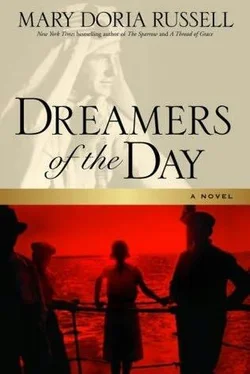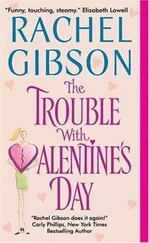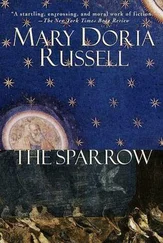I dithered another hour before telephoning the mechanic who valiantly kept Douglas’s obsolete electric running. I would be driving into Cleveland in the morning, I told Brian, and would he be kind enough to put a charge into the batteries tonight, please?
I drove as little as possible in those days, not because I was afraid, you understand, but because each outing required me to withstand another lecture on the technical and economic superiority of gasoline engines. Holding the telephone’s earpiece away from my head, I pretended to listen as Brian swore that he couldn’t keep that old rattletrap wired together much longer. It wasn’t safe for me to drive it into town. It might break down, and then where would I be? On the side of the road, freezing in this weather. Now listen here, I was instructed, just come on down to the garage and take a look. He had a used flivver that would do fine for my use. Just take a look, that’s all he asked, but he asked relentlessly, and I hated being nagged. Only Rosie’s exultation made the ordeal worthwhile. I can’t imagine anything in the wolf lineage to account for a dog’s delight in automotive travel, but Rosie loved to ride in cars.
The next day, the electric delivered me without incident to a parking spot on Euclid Avenue. Oh, for heaven’s sake, I could imagine Mumma saying. You don’t belong here. Go to Sears! And I admit that I hesitated at the sight of Halle’s liveried doorman, but once I made my mind up, I could be more determined than you might think. Clutching Rosie under one arm as though she were a furry football, I squared my shoulders as Papa used to and swept right through that door, as though my little dog and I had a perfect right to be in a place where a blouse costing less than nineteen dollars was hardly worth cutting up as a dust rag.
My spectacles fogged immediately. It’s Mumma, I thought, then told myself firmly, Nonsense, Agnes. It’s condensation.
I set Rosie down, took a handkerchief from my bag, and carefully polished the mist from my lenses. When I replaced them on my nose, my icy courage thawed and puddled under the heated gaze of three spruce shopgirls, each of whom seemed to have spent her entire salary at Halle’s.
Despite the advertised reduction in prices, few other shoppers had ventured out that bitterly cold morning. With no one else to wait on, all three girls advanced on me like an army vanguard, each wearing a combat uniform that was some clever variation on the theme of cultured pearls and a dark French frock with a white collar and cuffs.
“I only want to spend eighty-five dollars,” I told them, backing away. “I—I need clothes. And a pair of sturdy shoes. And an overcoat.”
There’s just the thing, Mumma said when my eyes fell on a sensible brown tweed. It will wear like iron.
The least beautiful but most confident of the three girls came straight up to me. “A dachshund!” this young blonde cried. “Oh, I love dachshunds! Half a dog high, dog and a half long—that’s what my boyfriend, Les, always says. Les is such a card! What’s her name?”
“Rosie,” I said, a little startled.
“Well, nice to meetcha, Rosie. My name’s Mildred.” With that, she snatched Rosie up with such aplomb, the dog hardly wiggled as she was lifted. “Take off your coat,” Mildred urged me, popping her gum. “Let’s see what we’ve got to work with, Miss—?”
“Um, Shanklin.”
Goodness, she’s rude, Mumma remarked, but I soon found Mildred’s breezy cheer a welcome change from the dreary posthumous conversations I’d grown used to, all those months alone. That’s simply the way young people speak now, I told Mumma, even to their elders.
I unbuttoned my old coat and handed it over, feeling strangely liberated when Mildred tossed it aside with the disdain that it deserved, but my heart, buoyed momentarily, sank to its accustomed level while she considered the challenge before her. Familiar with the sensation of being appraised by someone clear-eyed, pretty, and remorseless, I awaited judgment like a condemned criminal. Agnes Shanklin, I find you flat-chested, hipless, hopeless—
Mildred sighed. “You are so lucky! Miss Shanklin, you’ve got the perfect figger for a dropped waist. Perfect!”
Dumbfounded. There’s no other word for it. I was dumbfounded by the notion of possessing any sort of perfection, let alone one that was physical. When I stammered my disbelief, Mildred seemed genuinely astonished and told me in no uncertain terms that every fashionable woman between the ages of fifteen and forty-five yearned—positively yearned—for the very “figger” I’d been cursed with.
“But all that hair!” Mildred rolled her eyes. Fingers busy behind Rosie’s ears, she dropped into a sort of baby talk. “Mommy’s hair has to go. Isn’t that right, Rosie? Awful, awful, awful.”
Shifting Rosie to the crook of her left arm, Mildred lifted an in-store telephone’s earpiece with her right hand. “Antoine’s!” she ordered into the speaker, eyes on mine, as though there were nothing wrong with what looked back at her. “They’ll say they don’t have time,” Mildred predicted. “Don’t worry. I’ve got Antoine twisted right around this,” she said, displaying a little finger tipped in blood-red enamel.
And it appeared that was the case. Before I could change my mind, Mildred had secured an immediate appointment for me. Still carrying Rosie, she escorted me up several escalators to the store’s hairdressing salon, where I was relieved of more of my clothing and swathed in a yellow rayon wrapper.
There was a brisk discussion with the slender and artistic Antoine. A bob, they decided. Just the thing.
“Oh, gracious,” I said. “I don’t think—”
Mildred pulled a silver flask from her pocket and handed it to me as though that were just another service she provided to her customers. “Canadian courage,” she whispered, urging me to take a sip. “I know an ‘importer,’ ” she said with a wink, and then offered to take Rosie out for a walk.
Recognizing the word, Rosie wiggled and whined rapturously. The two of them disappeared together. Antoine picked up his scissors.
Two hours later, the salon receptionist summoned Mildred in time to see me whirled in my chair to behold Antoine’s handiwork. Everyone in the shop applauded when I gasped. What had always been long and frizzy and disobedient was now short and shining and perfectly waved.
“Miss Shanklin,” Mildred declared, “you are the bee’s knees.”
“Well! I don’t know about that,” I murmured. But truly? From that moment on, I was Galatea to Mildred’s Pygmalion.
The weather had gotten worse while I was being shorn; with the store now nearly empty, its bored staff was entirely available to bring a dazzled and unresisting customer into the twentieth century. As we sailed down the escalator, Mildred called out assignments to her stylish young colleagues, detailing the elements of my wardrobe each should supply from the Better Coats Department, from Sports Wear, and Dresses, and Ladies’ Shoes. All of Halle’s took on a party atmosphere and I allowed myself to be borne along on the enthusiasm. It reminded me of rainy afternoons in childhood when Lillie would cry, “Come on, Agnes! Let’s play dress-up!” Only, this time, I would be the fairy princess.
Mildred led me to an elaborately mirrored private dressing room, lifted Rosie’s paw, and wagged it in the direction of a curtained screen. “Off you go, Mommy,” she said in a baby voice, as though Rosie herself were speaking. “You’re going to park that girdle for good!”
The new underthings laid out for me were dauntingly simple and unconstructed, but with my hair decisively cut, there was no turning back. While I changed, Mildred perched on a stool, chattering about her rapid rise at Halle’s from stock girl to sales and telling me all about her boyfriend, Les Hope, who was thinking of changing his name to the jazzier Bob. “He’s a terrific dancer,” Mildred said, and I didn’t have the heart to point out that “terrific” means very frightening, not good. “He gives lessons, but that’s just temporary, y’know. He’s going to be a star—just you wait and see! Here, now, try this on.”
Читать дальше












